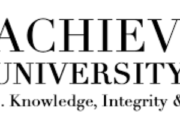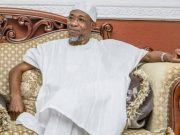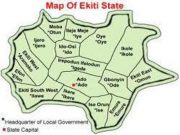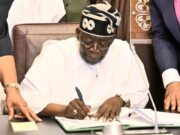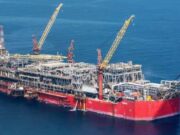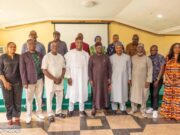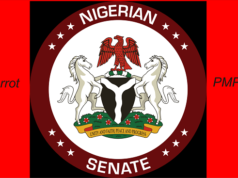President Bola Tinubu has urged African nations to deepen regional cooperation and deploy sovereign wealth funds strategically to accelerate development across the continent.
He said the coordinated use of these national reserves is essential for closing infrastructure gaps, enhancing climate resilience, and creating employment for the rapidly expanding youth population.
Speaking yesterday in Abuja at the opening of the fourth Annual Meeting of the Africa Sovereign Investors Forum (ASIF), represented by Vice President Kashim Shettima, he said the continent must align its resources and ambitions in response to a fast-changing global landscape.
The event was hosted by the Nigeria Sovereign Investment Authority (NSIA) under the theme: “Leveraging African Sovereign Wealth Funds to Mobilise Global Capital for Transformative Development in Africa.”
“This forum comes at a time the world is undergoing rapid transformation and is under pressure to think outside the box. For Africa, this is the moment to position itself to seize opportunities arising from these changes,” Tinubu said.
He urged African countries to emulate the example of evolving sovereign wealth funds globally, which now play central roles in national transformation rather than being used solely as fiscal stabilisation tools.
“Our future lies not in working in silos but in pursuing regional cooperation and collective ambition.
“Our sovereign wealth funds must become the anchors for pan-African investment platforms that de-risk projects, standardise processes, and deliver sustainable outcomes at scale. This is not just a strategy. This is a necessity,” he said.
He acknowledged the fiscal pressures African governments face amid heightened expectations for inclusive and sustainable growth, but said innovation and creativity in resource utilisation will provide a way forward.
“There can be no greater inspiration to reimagine how we invest, whether in setting up critical infrastructure, strengthening our climate resilience, promoting food security through agricultural innovation, supporting micro, small and medium enterprises, or embracing the digital economy to create jobs and expand opportunity,” Tinubu said.
He commended the NSIA for its role in championing strategic infrastructure projects, describing it as a “catalyst” in Nigeria’s development agenda, particularly in renewable energy, healthcare, and agriculture.
On the ASIF platform, President Tinubu said it represents a vital step toward fostering integration among Africa’s sovereign wealth institutions. He said the platform has the potential to pool expertise, capital and networks across borders and drive investment into high-impact projects.
“This is precisely why platforms like the Africa Sovereign Investors Forum are not just relevant but essential. ASIF offers a pan-African mechanism to harness the collective strength of our sovereign investment institutions. It gives us the power to share knowledge, co-invest across borders, and speak with a unified voice in the global financial ecosystem,” he said.
He described the launch of the ASIF Investment Platform as a bold initiative that could galvanise financing for cross-border infrastructure and drive the continent’s sustainable development. President Tinubu praised the NSIA’s leadership for working with like-minded funds and international partners to craft long-term investment strategies tailored to Africa’s unique challenges.
In his address, Finance and Coordinating Minister of the Economy, Mr Wale Edun urged stakeholders to focus on large-scale capital mobilisation, human capital development, policy alignment, and intercontinental collaboration. He said these elements are critical to unlocking transformative growth across Africa.
“We are optimistic that this meeting will produce significant transactions that can attract the needed capital, build impactful partnerships and catalyse economic transformation across the continent,” Edun said.
On his part, President of the African Export-Import Bank (AfreximBank), Prof. Benedict Oramah, called for a change in investment philosophy, urging that African sovereign wealth funds be retained within the continent to finance domestic projects.
“There is a misconception that Africa lacks bankable projects. The potential across the continent is massive. The issue lies in how we approach investment strategy. Sovereign fund managers need to prioritise domestic investments that have long-term impact,” Oramah noted.
ASIF Chairman, Mr Obaid Amrane, said the forum has made notable progress since its inception three years ago, positioning Africa more competitively on the global stage and bridging infrastructure financing deficits. He restated the forum’s commitment to ensuring that sovereign investment is at the heart of Africa’s transformation.
“While Africa remains open for business, we are focused on enabling sovereign investors to play an active role in projects that change lives across the continent,” Amrane said.
Managing Director of the Nigeria Sovereign Investment Authority, Mr Aminu Umar-Sadiq, said the focus of the gathering was on how Africa’s sovereign wealth funds can leverage partnerships at domestic, continental, and global levels to deliver economic transformation.
He said the funds must strike a balance between taking bold investment risks to drive impact and maintaining the discipline needed to preserve wealth for future generations.
Sadiq noted that the continent must work together to develop a sustainable investment platform capable of attracting large-scale global capital. Such a platform, he said, should support initiatives that deliver strong commercial returns while also generating meaningful social impact, allowing Africa to address its developmental needs through financially sound and socially responsive investments.
Umar-Sadiq added that African sovereign wealth funds must position themselves as the strategic partners of choice for international investors, combining their domestic knowledge and financial capacity to create an attractive market proposition. He said several investment and strategic agreements would be signed during the meeting to reinforce a collective commitment to economic transformation through collaboration and long-term capital deployment.
Also speaking at the forum, renowned pan-African scholar, Prof. PLO Lumumba, urged African leaders to take greater responsibility for future generations by investing within the continent rather than exporting capital abroad.
“It is our intergenerational duty to deploy the continent’s vast resources for the benefit of those yet unborn. Africa is not poor; our wealth is simply misallocated. Sovereign funds should remain in Africa to secure its future,” Lumumba stated.
Credit: thenationonlineng.net








